The book "Artificial Intelligence from the Perspective of International Relations: Opportunities, Challenges and Implications for Vietnam" edited by Dr. Vu Le Thai Hoang, Director of the Institute for Strategic Studies ( Diplomatic Academy) has just been released and has been 'sold out', not only because of the attractiveness of the title but also because of the meticulousness and dedication of a research project. Let's sit down with the editor of the book to understand more about the concerns of the group of authors and their determination to explore 'new lands' in international relations research.
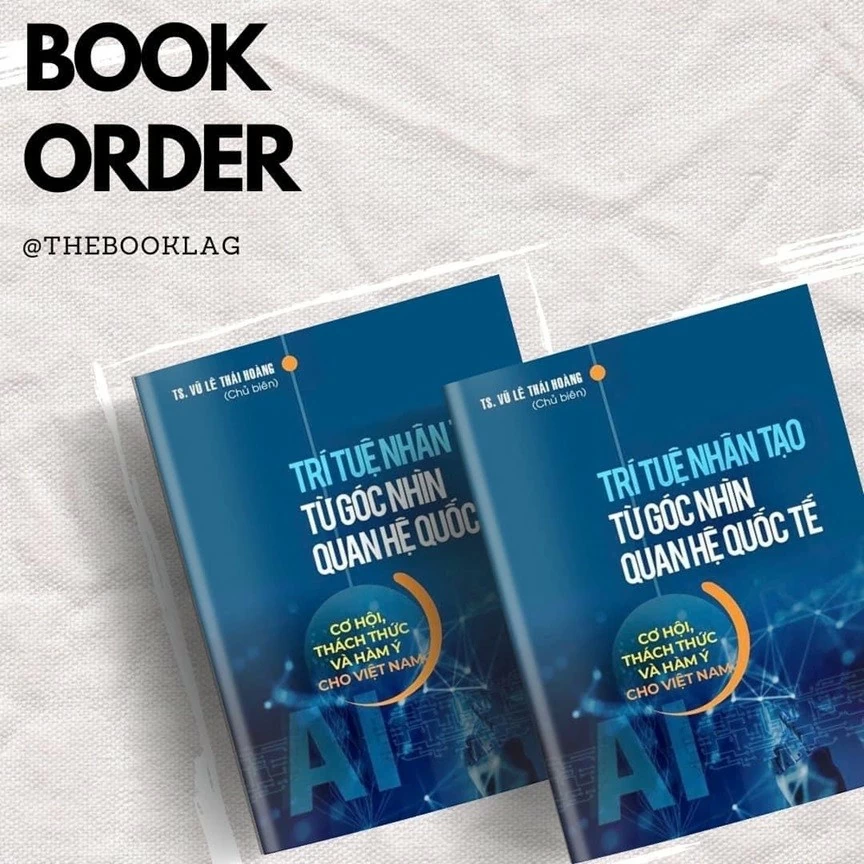 |
| The publication "Artificial Intelligence from the Perspective of International Relations. Opportunities, Challenges and Implications for Vietnam" is edited by Dr. Vu Le Thai Hoang. (Photo: DL) |
“Understanding the nature of AI, its recent advances, and its potential impact on the international order has become extremely important,” are the authors intending to “get one step ahead” before AI actually enters international life? What is the motivation and motive for the publication of this book with a very new topic in international relations, sir?
According to the authors, this book is perhaps not necessarily “a step ahead” but rather a timely and necessary effort to contribute to the recognition of the profound changes that AI is creating in international relations. As we have witnessed, especially since 2022-2023, the remarkable development of large language models and generative AI has been creating breakthrough impacts in many fields.
It can be affirmed that AI is no longer a technology of the future but has been and is reshaping the geopolitical landscape, changing the global balance of power, and directly impacting the national interests of countries.
 |
| Dr. Vu Le Thai Hoang , Director of the Institute for Strategic Studies, Diplomatic Academy. (Photo: provided by the author) |
Regarding the motivation for compiling the book, it can be seen that this comes from the urgent need to have a comprehensive and in-depth view of the impact of AI on international relations from the perspective of Vietnam. In the context of increasingly fierce strategic competition between major powers in AI technology, researching and grasping the opportunities and challenges that AI brings will be of great significance to the country's security and development.
The authors hope that the book will not only contribute to providing an academic reference source but also aim to propose specific policy directions, contributing a small part to the effort to help Vietnam be proactive and self-reliant in the AI era that is gradually taking shape.
When I first approached AI, I had a thought that was associated with the saying "parents give birth to children, God gives birth to their personalities". When even the "parents" of AI cannot know all the endless possibilities of their "child", its personality and morality, is that understanding correct or not?
This is an interesting and somewhat true analogy, but perhaps needs to be viewed more carefully and comprehensively. In fact, AI is not exactly like a “child” with a natural “God-given” personality, but rather a system that is developed based on human-designed principles, algorithms, and data. However, the remarkable similarity is in the ability to learn and develop beyond the original framework, especially with today's advanced AI systems.
Through research and analysis, we have found that the “unpredictability” of AI stems mainly from the complexity of its models, the huge amount of data, and its ability to continuously learn. This poses new challenges in the governance and control of AI, requiring a careful and responsible approach from the international community.
However, it is important to note that unlike human “natural personality,” AI behaviors and outcomes can still be guided and regulated through careful design of technical specifications, ethical frameworks, and appropriate oversight mechanisms.
AI can do things that go beyond the calculations of many experts, even its creators, and the reality of AI development has proven that. “Beyond calculation”, “beyond control”, “miscalculation”… are very “taboo” phrases in international relations, which can lead to unpredictable consequences. How do we accept that reality and how should we respond? How does this book answer and approach this issue, sir?
Indeed, the ability of AI to “out-compute” is an undeniable reality and poses special challenges in international relations. However, through research and analysis in the book, we realize that this is not a completely new situation in the history of international relations - where countries often face unpredictable and uncertain factors.
The key is the approach: Instead of fearing the uncontrollable, appropriate governance mechanisms and international cooperation frameworks need to be developed to guide AI development in a direction that is conducive to peace and security. The book proposes a number of concrete solutions, such as strengthening multilateral dialogue on AI governance, developing common principles for the responsible development and use of AI, and emphasizing the importance of maintaining the human element in strategic decision-making.
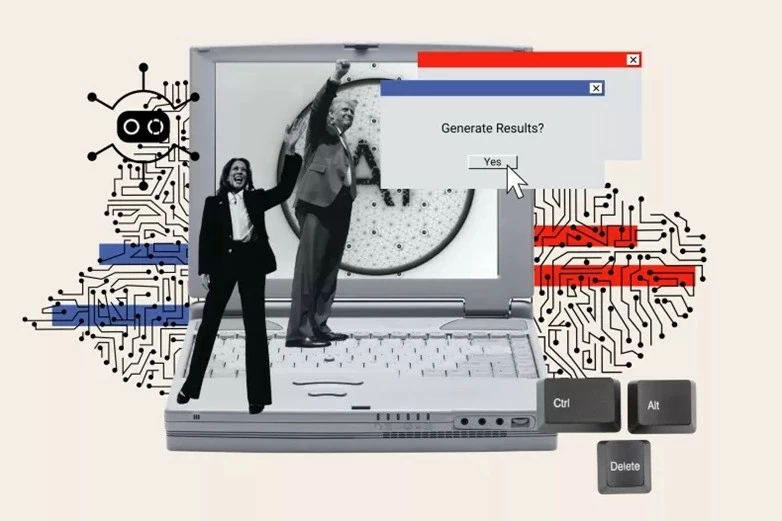 |
| AI has had certain impacts in the US election - Illustration photo. (Photo: Getty) |
The future of AI – AGI (AI systems capable of performing any intellectual task that humans can do), in your opinion, is the “security dilemma” only a concern with the nuclear issue and are there more immediate concerns? Once the superpowers equip themselves with more AI power, how can they “measure” the balance and predict the “situation”?
The "security dilemma" in the AI era is indeed much more complex and multidimensional than the nuclear weapons era. If with nuclear weapons we can count the number of warheads, estimate the destructive power and deterrence capacity, then with AI, especially when moving towards AGI, assessing the potential and true capacity of a country becomes extremely difficult.
This stems from the “dual” nature of AI – both a civilian and a military technology, its ability to develop rapidly and unpredictably, and its pervasiveness in all areas of life.
As major countries push ahead with AI development, measuring the balance of power requires new metrics and approaches. It is not simply a matter of comparing the number of patents or investment in research and development, but also factors such as access to data, computing power, quality of human resources, and especially the ability to integrate AI into strategic decision-making systems.
This makes maintaining strategic stability in the AI era a new challenge, requiring closer coordination and dialogue between countries.
The “color gamut” of AI opportunities in international relations seems to be mentioned less than the challenges from AI. Why is that, sir? Will the AI era be the era of the rise of non-state actors?
The book’s greater space devoted to challenges is not due to a lack of optimism about AI’s potential, but rather to a sense of academic and practical responsibility. While the opportunities that AI offers, such as increased productivity, improved public services, or the promotion of innovation, are often easily identified and widely discussed, the potential challenges and risks—particularly in the realm of international relations—are often complex and require more careful analysis. This is all the more important given that many of these challenges are systemic and could profoundly affect the structure of the world order.
In terms of the role of non-state actors, we are seeing a notable trend where large technology companies are becoming increasingly important in shaping the rules and norms for AI development. However, this does not mean that the role of the state is decreasing – on the contrary, in many cases we are seeing closer coordination between the public and private sectors in AI development and governance efforts, especially in matters related to national security and strategic interests.
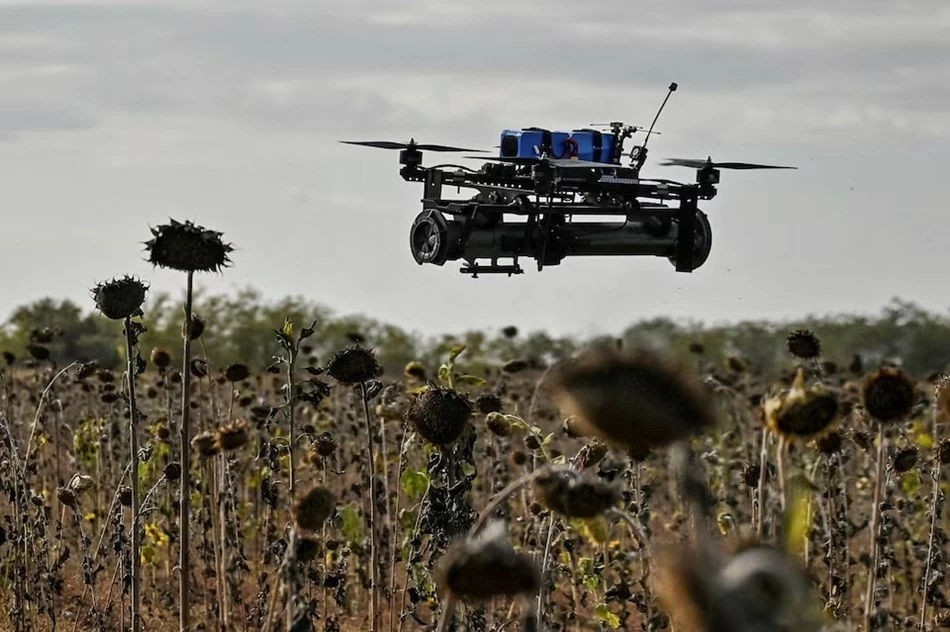 |
| AI is applied by Ukraine in controlling drones in the conflict with Russia. (Source: Reuters) |
The real “laboratory” of AI - the story of Ukraine, Israel opens up many issues of AI in conflict. The book has analyzed these aspects in detail. Can we consider this as a lesson to see the “price” of a confrontation with the involvement of AI?
The events in Ukraine and Israel have indeed become unintended “laboratories” for the application of AI in modern conflict. Through our analysis in the book, we find that these conflicts demonstrate the increasingly important role of AI in many aspects of modern warfare – from intelligence processing, to controlling unmanned vehicles, to target detection and tactical decision support.
However, the “cost” goes beyond material damage or human lives, and includes far-reaching humanitarian, ethical, and legal implications. In particular, these cases highlight the importance of developing clear international rules and norms on the use of AI in armed conflict, as well as the urgent need to strengthen measures to protect civilians in an era of high-tech warfare.
For Vietnam, the book mentions a comprehensive AI diplomacy strategy. How will this contribute to Vietnam promoting international cooperation in developing AI for the purpose of peace and development? What are the opportunities and challenges of Vietnam's position, role and voice from an AI perspective, in your opinion?
The comprehensive AI diplomacy strategy proposed in the book stems from the recognition that Vietnam can and should play an active role in shaping international rules and norms on the development and use of AI. As a dynamic developing country with technological potential and a proven role in many important international issues, Vietnam has the opportunity to act as a bridge between developed and developing countries in the field of AI. This can be done through actively participating in multilateral forums on AI governance, promoting South-South cooperation in technology development, and sharing experiences in applying AI for sustainable development.
However, to effectively promote this role, Vietnam needs to proactively improve its internal capacity in AI, train a team of diplomats with in-depth knowledge of technology, and build strategic partnerships in the field of AI with international partners. In particular, in the context of technological competition among major countries, Vietnam needs to clearly demonstrate its support for the development and use of AI for the goal of peace and common prosperity, while affirming the principle of independence and autonomy in its AI development policy.
The book mentions that the upcoming 14th National Party Congress has the opportunity to make the keyword “artificial intelligence” a strategic pillar in the national development vision. What will “anticipating” AI mean in realizing the nation’s goal of rising up in the new era, sir?
Making “artificial intelligence” a strategic pillar in the 14th National Congress documents is not simply the addition of a new technological term, but reflects a strategic vision of the key role of AI in the country’s development. This will be an important basis for orienting national resources, promoting innovation, and more importantly, demonstrating Vietnam’s determination to seize the opportunities of the digital age to realize the aspiration of developing a prosperous and happy country.
In the current context, proactively "anticipating" AI is of particular importance, not only in terms of economics and technology but also in terms of national security and position. This requires a comprehensive approach, from developing high-quality human resources, building modern digital infrastructure, to perfecting appropriate legal and institutional frameworks.
By placing AI in a strategic position, Vietnam demonstrates its determination not only to be a technology recipient but also to become one of the countries that can actively contribute to the development of AI, serving the interests and aspirations of the nation in the 21st century.
Source: https://baoquocte.vn/cuon-sach-tri-tue-nhan-tao-tu-goc-nhin-quan-he-quoc-te-hieu-de-tu-chu-chu-dong-trong-ky-nguyen-ai-292359.html




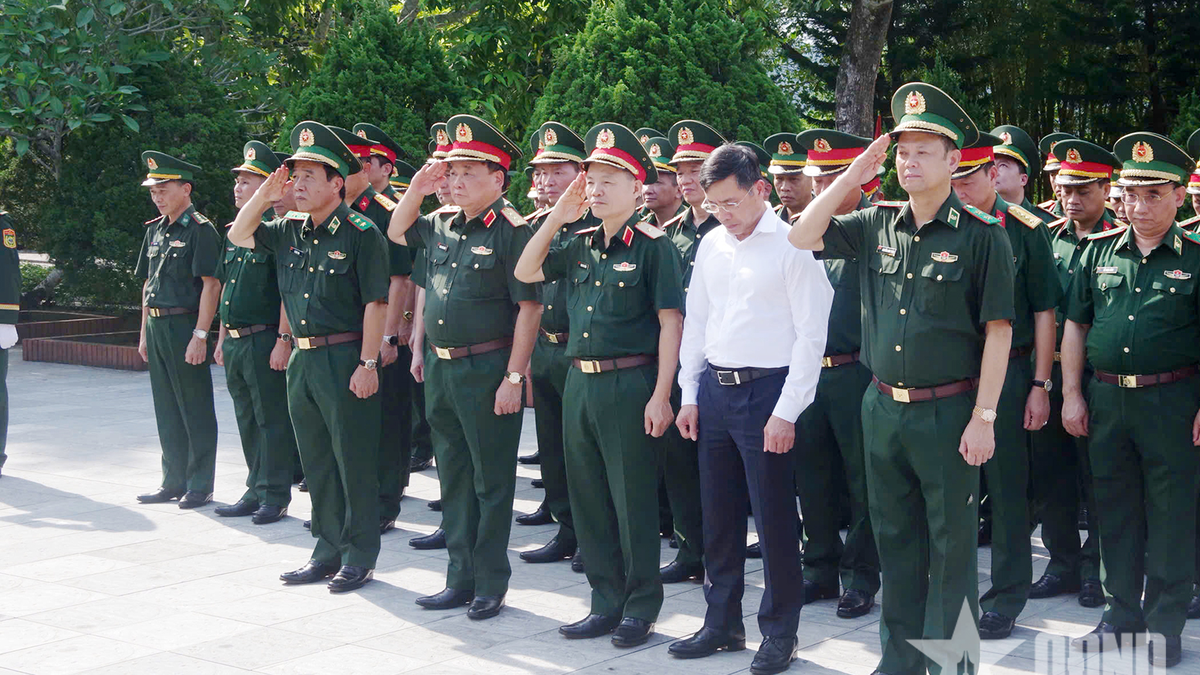
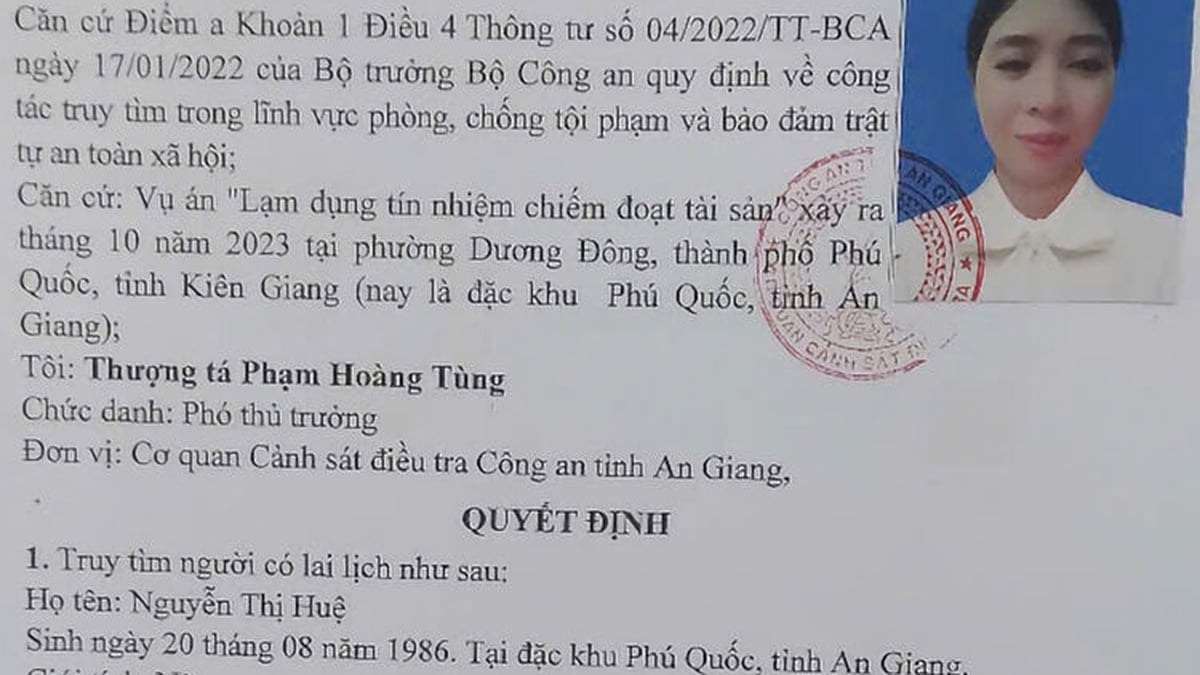



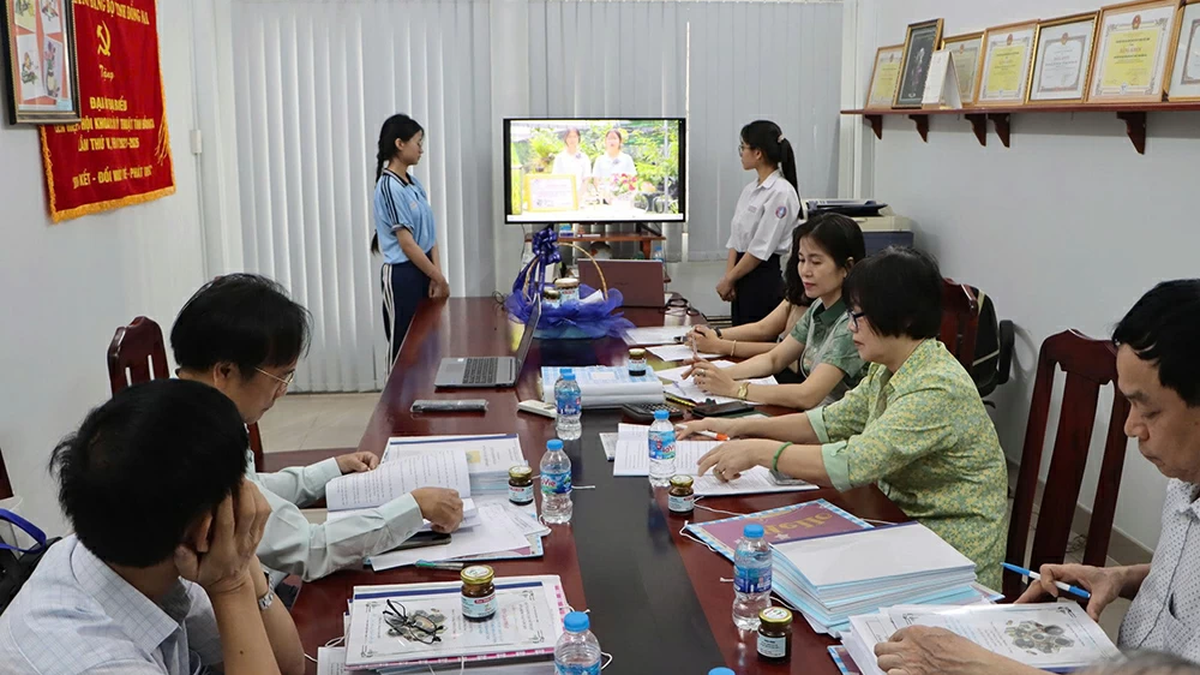
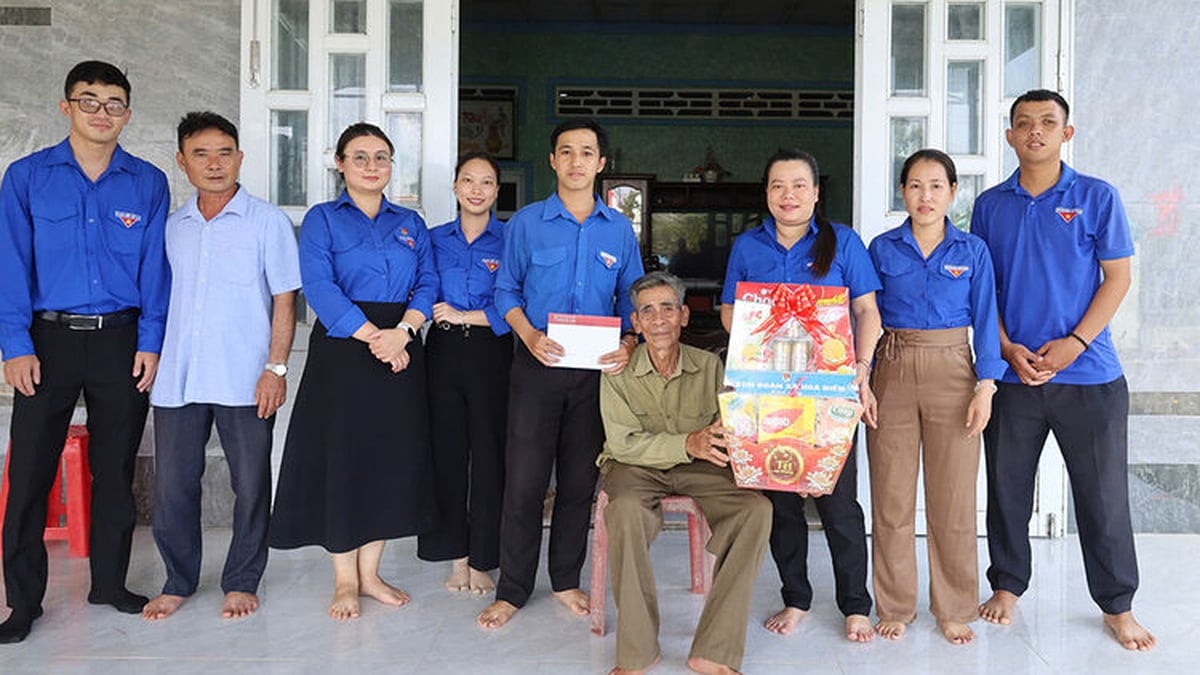






















































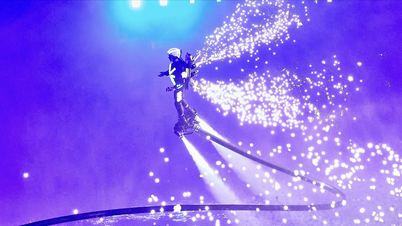

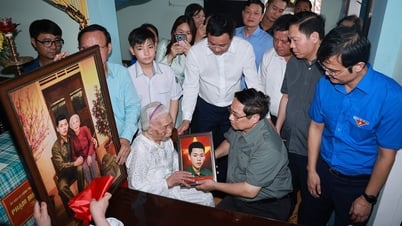
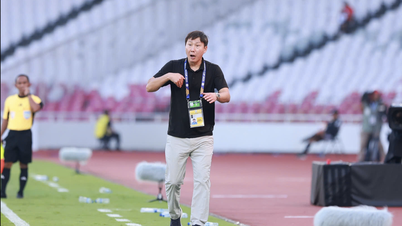








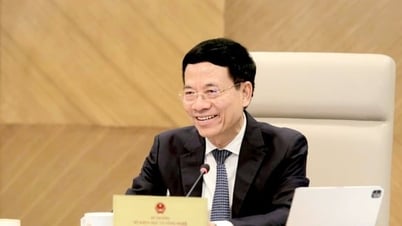

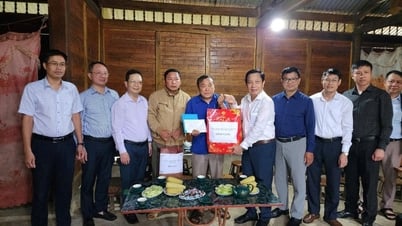
























Comment (0)